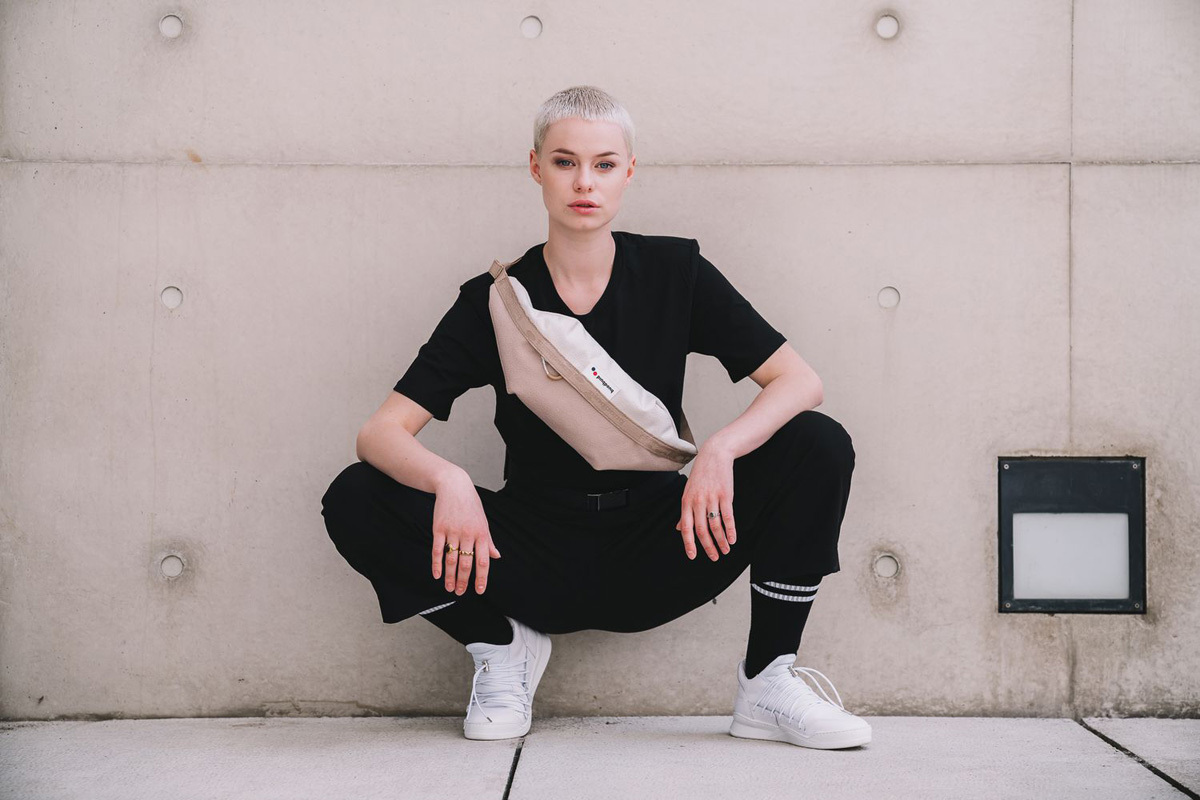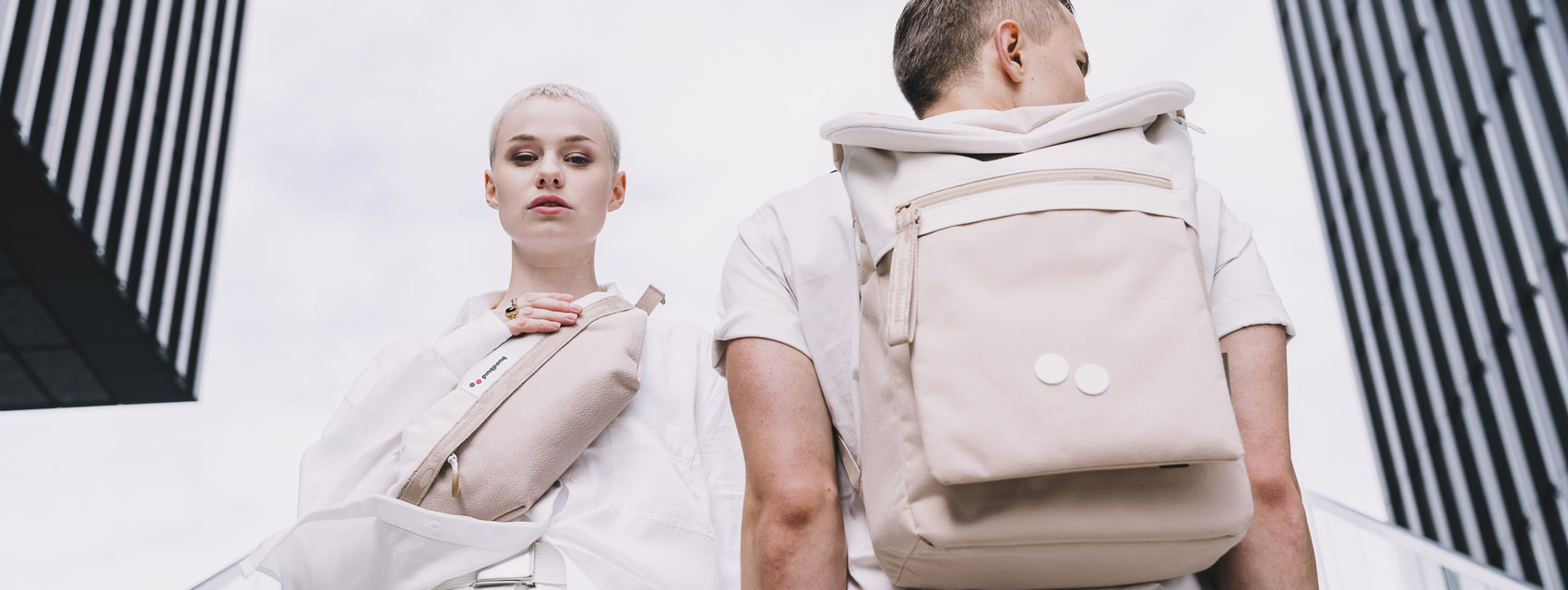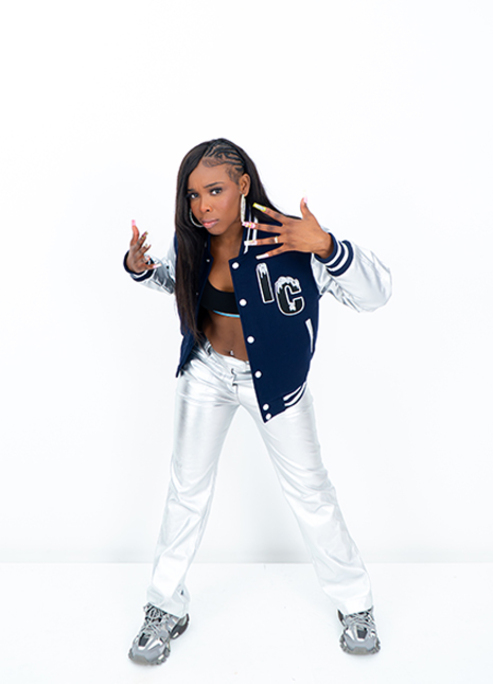We Talk The Challenges Of Sustainable Fashion With Pinqponq's Lead Designer
Facing new limits.
Pinqponq backpacks first hit German stores back in 2014, aiming to dramatically disrupt the functional accessories market. The goal: to preserve absolute practicality whilst bringing in conscious production methods and a boost of modern style. The brand’s drive to ditch tradition in the pursuit of something new and better is game-changing in itself, and its innovative accessory is just what the streetwear scene needed.
After hanging with the team at their much anticipated Berlin Fashion Week party, we caught up with Pinqponq's lead designer Annemarie Keizers to find out more about the motivations and challenges driving this cutting-edge new brand.
Tell us about yourself and your journey so far in the industry.
Hey, I’m Annemarie and I’m a designer for pinqponq. I originally studied fashion design in Arnhem in the Netherlands with an avant garde focus. I then went on to do some internships in high-end fashion brands such as Vivienne Westwood and Giles Deacon, but realized quickly that the hierarchical structures going on in this areas of the industry were not for me.
How did you get started with designing backpacks?
I needed money and started helping out with color designs and prints for a friend of a friend of a friend. Then they started with pinqponq and we realized that I should definitely put my visions into the brand.

Tell us about the unique development process and composition of the Pinqponq backpack.
Pinqponq has the approach of bringing together functionality, fashion and sustainability, while still being unique, without having a heritage-driven look and feel. This is happening more and more right now in fashion and outdoor/sportswear brands, but there is still so much to do. People don’t want to look like mountaineers just because they’re on the move and now, we can combine functional aesthetics with chic products like woollen coats. There’s a big surge going on here and we’re really contributing by providing the right bags for this ever-ready market. So for the products, we start from scratch with the designs, but question every part of the process to ensure that we create a product that really has contemporary relevance.
What are the challenges of working as a sustainable designer?
To work sustainably means limitation. And it all gets even more challenging when you’re also aiming to create fashionable and functional products. Being all three things can be hell for a design team. While it is super easy to have many different materials, surfaces and workmanships in the basic design process, we ultimately need to develop everything from scratch to create what we actually have in mind for our products. That takes a lot of time, cost, energy and makes it also a challenge economically. Sometimes you have to remind yourself why you are being sustainable in your daily routine to avoid falling back into doing it all the easy way. But that’s not much different from other aspects of life. Sadly, the wrong way is still the easy way.
What makes sustainable fashion an exciting process?
It's also the limitation - it’s a design concept in itself and that can lead you to a more unexpected outcome. Also, there’s a constant drive and meaning in the outcome, which gives an extra shot of motivation and excitement.
Why do you think many companies and designers are still shying away from ethical practices?
Because it is hard to find effective processes, especially if you are producing on a larger scale. You need a whole industry to support you. And the ethical industry is still much, much too small and too slow. The industry really needs much more support by politics, in my opinion. Sadly, I don’t believe in a revolution created solely by the conscious consumer. There must be economical incentives for the people caring about our environment and our world. Also, most ‘ethical’ brands only consider just one element under the umbrella term ‘ethical’ and there aren’t a lot that are really fully ethical yet. Why? Because it is really difficult. But we have to realize that and continue to try and better that.
At the moment we are working on a circular product for example, because just using recycled fabric isn’t enough. We also need to consider where the product will end up as after its been used and make sure that the used materials always remain available as a resource as well.
But you have to control so many separate branches by doing this. It costs a lot of money, time and change. There’s such a long way to go. But this is crucial to start. I especially hope more of the bigger brands and companies find their motivation soon to try and make a change.

What is your favorite quality/feature of the Pinqponq backpack?
My favourite thing about pinqponq is that I don’t have to look like a mountaineer while wearing a functional product with super comfortable features.
What upcoming projects are you looking forward to?
I am proud to announce that we are aiming to go much more high fashion in the future. There are so many paths we want to research and backpacks still hold an exciting place between fashion, functionality and streetwear and we really want to take a leading role in terms of design.
Thanks so much for talking to us!
Thank you!
The Spring/Summer 2018 line is now available internationally at pinqponq.com.












